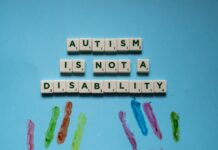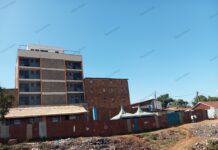By Diana Chiyangwa
JOHANNESBURG – At the end of 2019, South Africa gazetted two pieces of legislation on migration – the Refugees Amendment Act (2017) and the Refugee Regulations (2018).
The two laws, gazetted by Minister of Home Affairs, Dr. Aaron Motsoaledi, took effect on January 1, 2020.
The amendments seek to, among other things, control the movement and activities of refugees and asylum seekers in the swamped Southern African country, with one of the sections of the Refugee Amendment Act stipulating that an asylum seeker has to have entered the country lawfully (through an official port of entry /border post), and be issued with the appropriate Asylum Transit Visa, valid for five days.
Within those five days, one has to get to a Refugee Reception Office (RRO) in order to apply for asylum, failure of which can jeopardize their chances of being permitted to apply for asylum.

Should one not present compelling ground for the delay, they could be excluded from making their asylum application. The applicant must be able to provide proof of whether they entered the country legally or illegally, while those without a transit visa need to provide reasons as to why they entered the country illegally. Biometric data and valid identity – a valid passport from the country of origin, is also mandatory.
The application of biometrics to refugees and asylum seekers is a recent development, which has markedly improved international efforts to promote their welfare.
The Colombia Human Rights Review states that the impact of biometrics has been felt directly for example, in refugee camps, or through programs designed to reduce incidents of detention, and indirectly by addressing fraud and security concerns, thereby improving the political viability of efforts meant to protect refugees and asylum seekers.
In South Africa, the White Paper on the Repositioning of Home Affairs states the Department of Home Affairs (DHA) intention to make increased use of biometric information for asylum seekers and refugees, cross-border migrants, or citizens. Biometric data is collected by linking up various biometric information systems; this shift has already happened in relation to passport and smart identity documents cards for South African citizens. Banks are also linked to this system.
For refugees and asylum seekers, DHA systems do not, yet, capture a comprehensive list of biometric data, but it is within the policy aims outlined in the White Paper on migration.
The white paper seeks for this to start at the port of entry, where data is captured about who is coming into or leaving the country, and for what reason. There are both positive and negative possibilities implicit in this policy shift.
Where a five-day asylum transit visa must be presented (or compelling grounds why not) prior to an asylum seeker being able to lodge their asylum claim: in International Refugee Law, the exclusion of asylum seekers from applying simply based on procedural grounds, and not on substantive grounds is highly irregular. The process that is followed at an RRO is that the asylum applicant’s information would first be verified before they can proceed with the substantive grounds of their claim.
This entails the application of both biometrics and the law. The biometric data of an individual captured at the port of entry would be verified by the staff at an RRO to check when the applicant entered the country as well as whether they entered at an official border post. Where information in this process is not available, the likelihood is that this process could jeopardize an applicant’s claim.
One concern is that the use of biometrics could mean asylum seekers who are de facto refugees, may be excluded from being able to have the substantive elements of their asylum claim properly adjudicated. This in turn could result in the person unlawfully returning to their country of origin, which would be a violation of the international law principle of non-refoulment.
On the positive side
With the limited number RRO’s in South Africa, the use of biometric systems for asylum seekers and refugees may be a significant step in improving services and efficiency. It could mean they would be able to obtain renewals of documentation at a bank or somewhere more convenient than at one of the handfuls of far-flung RROs
Human rights groups have criticized the collection and storage of refugees’ and asylum seekers’ biometric data, arguing that the existence of biometric identifiers automatically linking applicants to past asylum applications should not preclude their new applications.
One of the many victims of the old system is Siphiwe Ncube, 38, a single mother of three. She is among thousands of Zimbabweans living in South Africa. She has been using an asylum seeker’s permit for the past 15 years. The renewal process was never easy for her. The relocation of RROs was a nightmare. She recalls the countless times she has had to queue and sleep for days outside the centre in Crown Mines.

This was to be in front of the queue as the centre used to assist a small number of people. Her nightmare began in January 2019, when she went to renew her permit at Desmond Tutu Refugee Reception Office in Pretoria. After the verification process at the self-service machines where extensions and appointments are made, she was referred to the offices where she was told that her personal data is not reflected on the system.
Asylum seekers’ permit holders who use ABT machines are supposed to have their transit visa issued at the port of entry and a passport. However, it was reported that 99,9 percent of them do not have a transit visa.
“Like any other citizen, refugees and asylum seekers need to be served by professional officials, unfortunately for me, it was a horrible experience,” Ncube narrates.
“I was sent from pillar to post by different officials. The system stated that I was ‘awaiting a decision.”
Ncube says all she wanted to know were details of her determination, which were not made available to her. Her grave concern was her vital information that was not picked up by the system.
After her ordeal at the RRO, she was advised to go to the Lawyers for Human Rights in Pretoria for assistance.
“I went to the RRO three consecutive times with no luck. The last thing they told me was that I would be deported if I persistently requested the outcome of the decision,” she says.
She wanted was to appeal, but the process was not fully explained to her. Since then, life for Ncube changed drastically; the inability to lodge an application to renew her asylum permit has left her undocumented.
“I wish I had applied for the Zimbabwe Exemption Permits that were introduced by former Home Affairs Minister Dr. Nkosazana Dlamini in 2010, but I thought I stood a good chance of being granted a refugee status,” she explains.
Barnaby Kangoni, a health worker at Jesuit Refugee Service (JRS) in Johannesburg, said they had challenges in assisting people like Ncube, who at no fault of theirs are still undocumented.
“Some wanted to be assisted in registering kids at school, with such cases, we often referred them to Lawyers for Human Rights and Consortium for Refugees and Migrants in South Africa (CoRMSA),” he explains.
In her speech during the 5th Annual Meeting of the ID4Africa on the 18th of June 2019, the Minister of International Relations and Cooperation, Dr. Naledi Pandor said when South Africa hosted the Civil Registration and Vital Statistics (CRVS) Conference in Durban in 2012, African countries were encouraged to continue developing policies, systems, and legal frameworks.
“That work has not yet been completed. This is evidenced by the themes of this 2019 ID4Africa Annual Meeting. We still have institutions responsible for public administration and social services that do not have basic data and information necessary for managing and monitoring their mandated function of public resources,” Dr. Pandor said.
The 2030 Sustainable Development Agenda outlining the 17 Sustainable Development Goals, pays particular attention to the people, planet, and prosperity. The SDGs recognize the positive contribution migration makes to inclusive growth and development and call on United Nations (UN) the Member States to strengthen their international support and cooperation, to ensure safe, orderly, and regular migration with full respect for human rights and fundamental freedoms.
In this regard, the South African government has embarked on a comprehensive process of re-examining the role that migration plays in its society and economy through an extensive review of the international migration policy outlook currently underway.
The objective of this policy framework is to better equip South Africa to manage the challenges presented by migration and harness its opportunities for both local communities and migrants.
For Ncube, life has been difficult, as she no longer has any form of documentation. She feels that the issue of her status determination was not properly handled.
Amir Sheik, spokesperson for the refugee rights group, The African Diaspora Forum (ADF), says his office receives many complaints like Ncube’s, adding that they are trying to have a dialogue with the DHA on such matters.
Roni Amit, a former Researcher at Africa Centre for Migration Society (ACMS) wrote a report in June 2012 titled: “All Roads Leads to Rejection: Persistent Bias and Incapacity in South African Refugee Status Determination”.

The report was “part of a series of reports examining DHA policies, practices, adherence to the law in the asylum system. The report examines the quality of status determination decisions in accordance with the requirements of international and domestic refugee law, as well as legislation relating to the constitutional right to fair administrative action.” It further revealed that there are many flaws in South Africa’s status determination process.
As of 2018, the United Nations Refugee Agency (UNCHR) estimated there were 25.9 million refugees and 3.5 million asylum seekers globally. Countries in developed regions hosted 16% of refugees, while one-third of the global refugee population (6, 7 million people) were in the world’s Least Developed Countries.
UNCHR’s digital identity system is used by many host governments and UNCHR for the registration and identity management of asylum seekers and refugees. By March 2020 over 9 million refugees in 72 countries had been biometrically enrolled in the system.
How digital identity can enable the Global Compact on Refugees: The first-ever Global Refugees Forum guided by the Global Compact on Refugees took place in December 2019.
The issue of the backlog is another concern faced by many asylum seekers in South Africa. At the end of 2019, the Auditor General Report found that the Refugee Appeals Board backlog was 147,794 and that it would take 68 years to attend to this backlog. UNCHR is assisting the DHA with the backlog. It is undecided whether the use of biometric data will assist with this type of backlog, or at the very least ensure that staff members at DHA are provided with efficient systems that will free them up to focus on other important tasks such as the backlog.
The implementation of policy shifts will continue to be questioned on the hardships of refugees and asylum seekers in keeping their documentation.
*Sphiwe Ncube is a pseudonym the subject has chosen to remain anonymous.
This reporting project was made successful with the support of the Africa-China Reporting Project.














